Egypt
Egyptian foreign minister Badr Abdelatty welcomed his German counterpart Johann Wadephul to Cairo on Friday as tensions escalated following Israeli strikes on Iran's nuclear sites, which killed top military leaders and scientists.
At a joint news conference with Abdelatty, Wadephul warned against escalation in the region while stressing the threat of the Iranian nuclear program to regional security and adding "Israel has the right to defend its existence and the security of its citizens."
Wadenphul expressed concern over Israel’s military strikes and Iran’s retaliatory launch of hundreds of drones toward Israel, calling the developments deeply worrying.
Abdelatty for his part condemned the “dangerous and unjustified” escalation, warning it could plunge the region into chaos. Abdelatty added that nuclear non-proliferation is among top Egyptian policy priorities. Israel launched a wave of strikes across Iran on Friday that targeted its nuclear program and military sites, killing at least two top military officers and raising the prospect of an all-out war between the two bitter Middle East adversaries.
It appeared to be the most significant attack Iran has faced since its 1980s war with Iraq. The strikes came amid simmering tensions over Iran’s rapidly advancing nuclear program and appeared certain to trigger a reprisal.
Hours later, Israel’s military said it had begun intercepting Iranian drones launched in retaliation. Iran’s President Masoud Pezeshkian says his nation would “strongly take action” against Israel after its attacks on the country. In a televised address Friday, Pezeshkian urged people to unite behind its theocratic government.




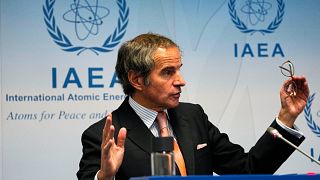
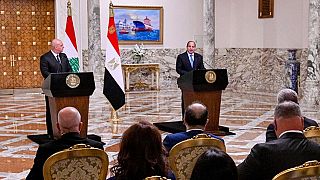

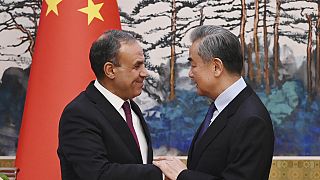

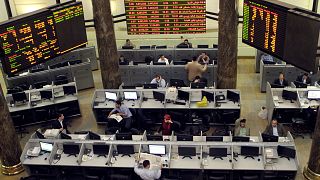

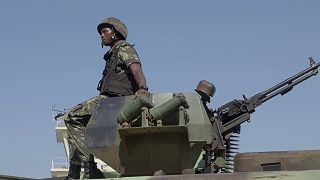
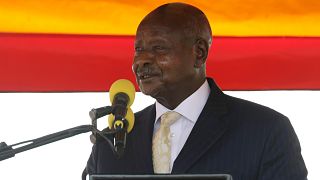
Go to video
Massive rallies in Tehran condemn U.S. strikes on Iranian nuclear facilities
Go to video
Oil flip-flops and shares are mixed after the US strikes Iranian nuclear sites
00:58
Israel-Iran ceasefire appears to hold amid tensions and diplomatic juggling
00:39
Ceasefire now in effect between Israel and Iran, Trump confirms
00:28
Iran launches missile attacks on US base in Qatar
01:09
Iranian Foreign Minister Abbas Araghchi seeks Russian support from Vladimir Putin
Go to video
Massive rallies in Tehran condemn U.S. strikes on Iranian nuclear facilities
Go to video
Oil flip-flops and shares are mixed after the US strikes Iranian nuclear sites
00:58
Israel-Iran ceasefire appears to hold amid tensions and diplomatic juggling
00:39
Ceasefire now in effect between Israel and Iran, Trump confirms